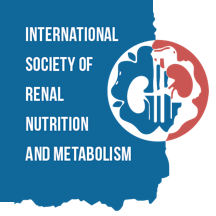Nephrology is a specialty for both adult internal medicine and pediatric medicine that concerns the study of the kidneys, specifically normal kidney function and kidney disease, the preservation of kidney health, and the treatment of kidney disease, from diet and medication to renal replacement therapy. The word "renal" is an adjective meaning "relating to the kidneys", and its roots are French or late Latin. Whereas according to some opinions, "renal" and "nephro" should be replaced with "kidney" in scientific writings such as "kidney medicine" or "kidney replacement therapy", other experts have advocated preserving the use of renal and nephro as appropriate including in "nephrology" and "renal replacement therapy", respectively.
Protein toxicity is the effect of the buildup of protein metabolic waste compounds, like urea, uric acid, ammonia, and creatinine. Protein toxicity has many causes, including urea cycle disorders, genetic mutations, excessive protein intake, and insufficient kidney function, such as chronic kidney disease and acute kidney injury. Symptoms of protein toxicity include unexplained vomiting and loss of appetite. Untreated protein toxicity can lead to serious complications such as seizures, encephalopathy, further kidney damage, and even death.
Robert William Schrier was founding editor-in-chief of the magazine Nature Clinical Practice Nephrology. Schrier was formerly Chairman of the Department of Medicine at the University of Colorado School of Medicine for 26 years, and Head of the Division of Renal Diseases and Hypertension for 20 years. At the time of his death, he was Professor Emeritus at the University of Colorado School of Medicine. He died in Potomac, Maryland.

Robert Provenzano is an American nephrologist. He is also an Associate Clinical Professor of Medicine at Wayne State University School of Medicine.
The Renal Support Network (RSN) is an American nonprofit, kidney patient-focused, kidney patient-run organization that focuses on individuals affected by chronic kidney disease (CKD).

Lori Hartwell is the Founder and President of the Renal Support Network, author of Chronically Happy: Joyful Living in Spite of Chronic Illness, and co-host of KidneyTalk, a biweekly webcast of issues of interest to those with Chronic Kidney Disease (CKD).
T. Alp Ikizler is a nephrologist, currently holding the Catherine McLaughlin Hakim chair in Medicine at Vanderbilt University School of Medicine, where he does clinical work and heads a research lab. Born in Istanbul, Turkey, he received his M.D. from the Istanbul University Faculty of Medicine.

Founded in 1966, the American Society of Nephrology (ASN) is the world's largest professional society devoted to the study of kidney disease. Composed of over 20,000 physicians and scientists, ASN promotes expert patient care, advances medical research, and educates the renal community. ASN also informs policymakers about issues of importance to kidney doctors and their patients.
Carl William Gottschalk was the Kenan Professor and Distinguished Research Professor of Medicine at the University of North Carolina at Chapel Hill. Gottschalk made important discoveries about the function of the kidneys, and helped set government policies that provided dialysis to patients with kidney failure.
Nathan W. Levin is an American physician and founder of the Renal Research Institute, LLC., a research institute dedicated to improving the outcomes of patients with kidney disease, particularly those requiring dialysis. Levin is one of the most prominent and renowned figures in clinical nephrology as well as nephrology research. He has authored multiple book chapters and over 350 peer-reviewed publications, including articles in leading journals such as Nature, the New England Journal of Medicine, and The Lancet.

The International Society of Renal Nutrition and Metabolism (ISRNM) is a learned society on nephrology that has the objective of advancing knowledge, education and awareness pertaining to nutrition and metabolism in kidney disease by fostering communication of the advancements of knowledge in renal nutrition. The ISRNM website states that it promotes expert patient care, advances medical research, and educates the kidney community on the role of nutrition in chronic kidney disease and acute kidney injury including the role of nutritional status, uremic malnutrition, protein-energy wasting, and dietary derangement. The site also mentions a role in informing policymakers about issues of relevant to kidney and nutrition communities and the patients.
Kamyar Kalantar-Zadeh is a US American physician doing research in nephrology, kidney dialysis, nutrition, and epidemiology. He is best known as a specialist in kidney disease nutrition and chronic kidney disease and for his hypothesis about the longevity of individuals with chronic disease states, also known as reverse epidemiology including obesity paradox. According to this hypothesis, obesity or hypercholesterolemia may counterintuitively be protective and associated with greater survival in certain groups of people, such as elderly individuals, dialysis patients, or those with chronic disease states and wasting syndrome (cachexia), whereas normal to low body mass index or normal values of serum cholesterol may be detrimental and associated with worse mortality. Kalantar-Zadeh is also known for his expertise in kidney dialysis therapy, including incremental dialysis, as well as renal nutrition. He is the brother of Kourosh Kalantar-zadeh, who is an Australian scientist involved in research in the fields of materials sciences, nanotechnology, and transducers.

Carmine Zoccali is an Italian nephrologist and a clinical investigator. He has contributed to research in several fields, most notably hypertension and cardiovascular complications in chronic kidney disease (CKD), CKD progression and clinical epidemiology of kidney diseases at large. He is known for his studies on cardiovascular risk in CKD and dialysis patients. He was among the earliest investigators that focused on the relevance of endothelial dysfunction and inflammation for the high risk of cardiovascular disease in these populations. In this research area, he was the first to link endogenous inhibitors of the nitric oxide system with death and cardiovascular disease. and the first to document a relationship between sympathetic over-activity and these outcomes Dr Zoccali is a practicing specialist in Nephrology, with a national qualification for the full professorship in Nephrology. He is also a specialist in hypertension, certified by the European Society of Hypertension (ESH).

John Stewart Cameron was a British nephrologist.
Muthu Krishna Mani is an Indian nephrologist and a pioneer of nephrology in India. He is a former chief of nephrology department at Apollo Hospital, Chennai and is best known for treating Jayaprakash Narayan when the latter developed a renal disorder. The Government of India awarded him the Padma Bhushan, the third highest civilian award, in 1991. He is also a recipient of the Dhanvantari Award (2011) and the Ravindranath Tagore Award. He has published over 125 medical papers and the orations delivered by him include the 2018 Dr. Pathros Matthai Memorial Oration of the Indian Society of Nephrology.
A renal diet is a diet aimed at keeping levels of fluids, electrolytes, and minerals balanced in the body in individuals with chronic kidney disease or who are on dialysis. Dietary changes may include the restriction of fluid intake, protein, and electrolytes including sodium, phosphorus, and potassium. Calories may also be supplemented if the individual is losing weight undesirably.
Robert H. "Heppy" Heptinstall was an English pathologist specialising in renal pathology. He was the chair of the department of pathology at Johns Hopkins Hospital for 19 years.

Katalin Susztak (Suszták) is a Hungarian American scientist and nephrologist at the Perelman School of Medicine at the University of Pennsylvania. She is a professor of medicine and genetics, and currently the codirector of the Complications Unit at the Institute for Diabetes, Obesity and Metabolism. Her laboratory made major contributions to the current understanding of kidney disease development. She is also the founder of the Transformative Research In DiabEtic NephropaThy (TRIDENT), a collaborative network of physicians and basic scientists, to find cures for diabetic kidney disease.
Peter Stenvinkel is a Swedish nephrologist and academic. He is a senior lecturer at Karolinska University Hospital and a professor of nephrology at Karolinska Institutet.
Stephen Zale Fadem is an American nephrologist and medical educator specializing in kidney disease management, dialysis, and nephrology education.






